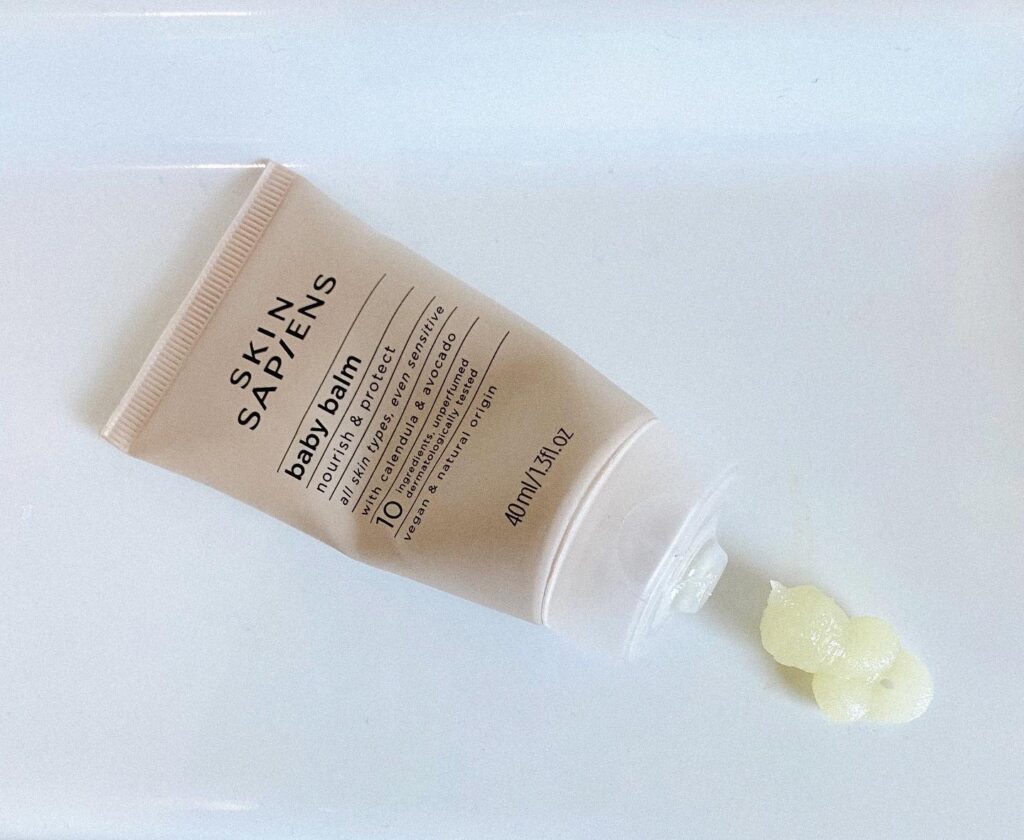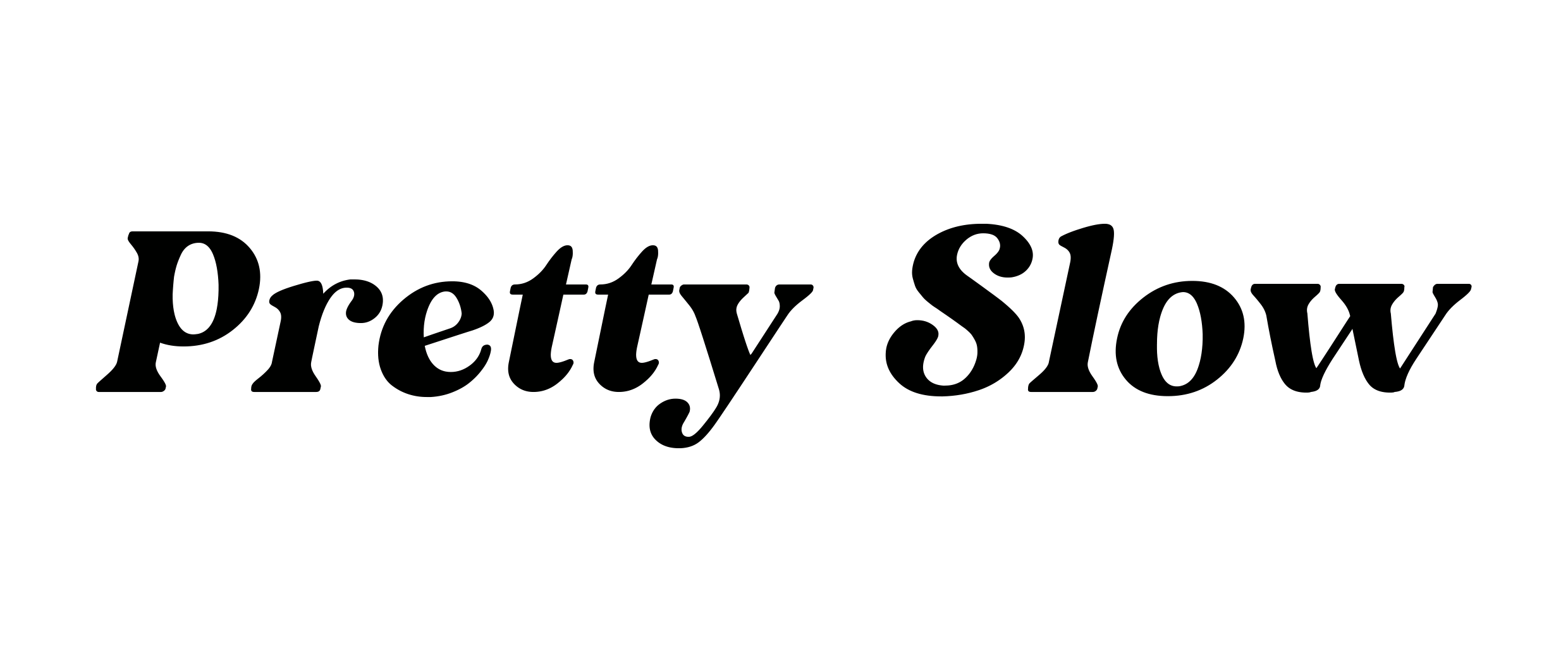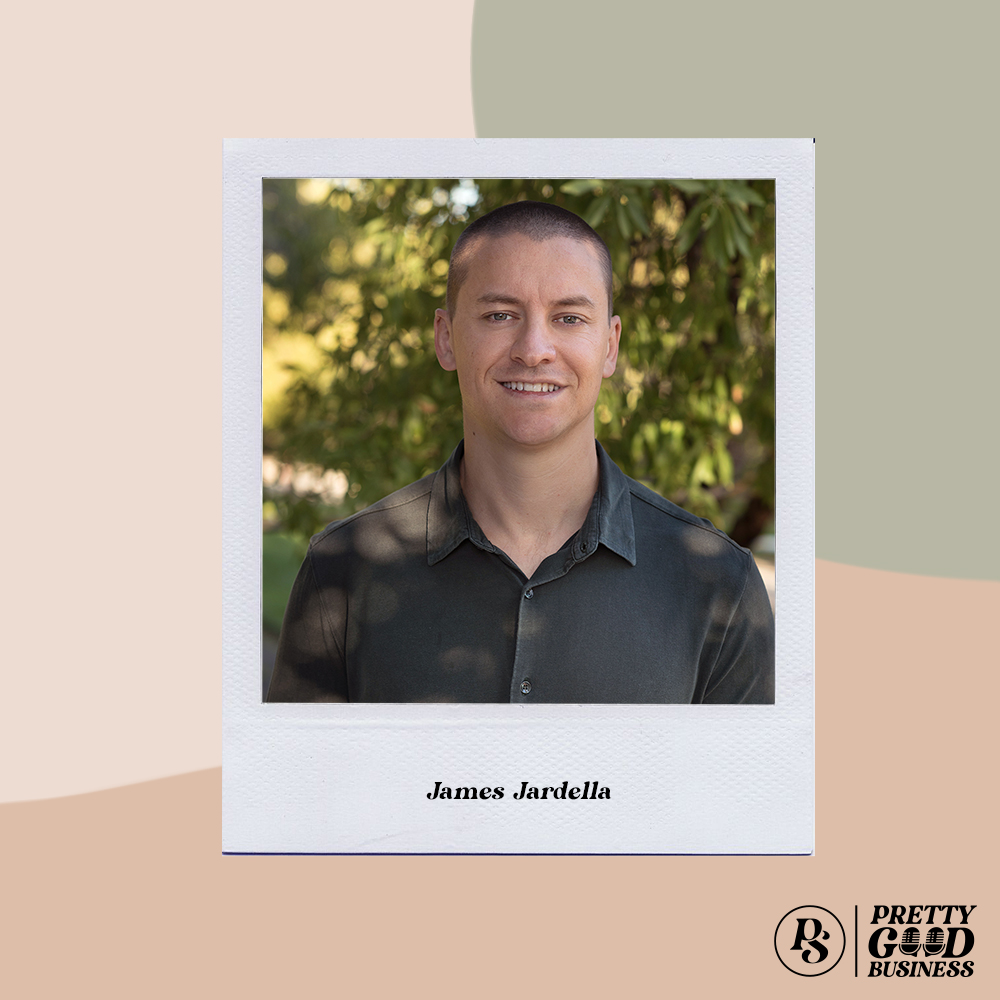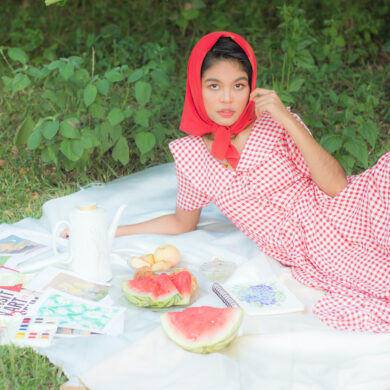In this interview, James Jardella, founder of Skin Sapiens, tells us why less is more when it comes to beauty products.
We know where our vegetables come from, where our clothes were made and how many plastic bottles went into making our leggings – but do we know what’s inside our beauty products? The truth is, with extremely long lists of ingredients, chances are that most of us wouldn’t be able to recognise half of them.
We chatted with James Jardella – the medical engineer behind the sustainable skincare brand Skin Sapiens – about the importance of looking into the products we use and why skincare doesn’t have to be complicated.
Can you tell us more about Skin Sapiens?
Skin Sapiens is a new skincare brand; we make earth-conscious skincare with just one goal. And that’s to help you feel comfortable in your skin. So today, the beef industry is going through lots of change. But essentially, there are a lot of super complicated products and the way that they’re formulated often oversold. And historically, packaging has been done in a wasteful manner. And we started Skin Sapiens to turn that on its head and make it much easier to help people find the right product for them and their skin. So we take nature’s best active botanicals, and we pair them with common skin concerns. And then we do absolutely everything in our power to leave out anything unnecessary whether we’re talking product formulation, or packaging, which we make from recycled, recyclable materials.
You said the birth of your first child was a catalyst in the creation of Skin Sapiens. Can you tell us more about what moved you to start Skin Sapiens?
My skincare journey started a long time ago. I grew up with a whole bunch of different skincare issues when I was a teenage boy. I had teenage acne, and I often had eczema and dry skin as well. I used to struggle. I remember I would find that my acne products would make my eczema worse, and my eczema products would make my acne breakout. Over time, I learned through trial and error, what wouldn’t work on me and my skin.
After years, I ended up going on to work for some of the biggest beauty companies in the world. But ultimately, I was always left feeling that the industry as a whole could do a lot more to help people to get under the lid of what’s really inside beauty products. And when I became a dad to a baby boy called Alex, I’d spent my career in skincare, and we felt like the first time we lost control over what we’re putting into his body was bath time.
We just spent nine months, probably like most slightly paranoid millennial parents, being super careful about everything that we were eating. We had all this control over what we were eating, and it felt so unnatural to come bath time then, bathing our boy with something that we didn’t understand. Wanting something good for my boy, was what pushed me to take the plunge.
We always think that what is used in children’s products must be better, but actually, the list of ingredients is just as long.
Precisely, in Europe and the UK, there are lots of consumer protections and regulations in place to make sure that safe products make it to market and that’s not always the case in other parts of the world. But just because something is deemed to be clinically safe, it doesn’t mean that it’s necessarily right for you or your skin. Perfume is a classic example. I used to hate putting perfumed products onto my skin because I just knew it would cause my skin to sting. That’s because when you find perfume on an ingredients’ list, you don’t know what’s inside. It’s almost like an ingredients list inside an ingredients list.
I wanted to choose or make informed choices over what I was putting onto my boy. Babies need very simplistic care, especially in the early weeks of life when the baby’s skin is going through lots of changes. We need to keep them clean, hydrated and protected; everything that’s more complex than that is almost unnecessary, and more likely to cause an issue than anything else. So that’s why we wanted to strip things back and do things differently.
Do you think that your background helped you know what to do (or what not to do) when you started Skin Sapiens?
I graduated in medical engineering, and that was a great foundation in education. I went off working for some of the biggest beauty companies in the world for more than ten years. I moved to smaller beauty businesses to learn how to bring products to the market – which is very different when you’re a huge multinational to when you’re a startup like we are today.
I think that experience has been invaluable, but I still wouldn’t say that it means you have all the answers. The more you learn, the more you realise there is yet to learn.

You created your first product in your kitchen, how did you come up with it? How did you find the laboratory you are working with now?
It was a step by step process, a lot of burnt pans in a few months. It was a lovely product, but it wasn’t particularly scalable. I travelled across Europe – Italy, UK, Spain, and Sweden – looking for the right laboratory. We found an excellent laboratory in Sweden who are experts in vegan formulations and with their help we were able to evolve our range from that first balm to a range of six products for all skin types and ages.
You sold your flat in London to start the – did you believe in it straight away?
Honestly, it was terrifying. I just thought I spent so long working for other people, giving my all to try and help people succeed with their businesses, it was time to make that same commitment to myself and my family.
I just felt like, if I believe in this enough, I should put myself on the line first – before going to my friends and family – and do what I can to take the brand that we’re trying to create as far forward as I could, on my own two feet before then looking for outside help.
You are now at a point you are sold in Selfridges, how does that feel?
It’s a bit of a pinch-me moment. We’re currently in Selfridges as part of the Project Earth beauty collection and the bright new things that it was a nice moment. At the same time, I was aware that we’re still really early on in our journey. We still only have six products today, we brought those to market in January this year – we’ve been in the market for less than a year, but it’s moving in the right direction. A milestone like that gives you the energy to keep going.
So what did you learn during the process of building a sustainable business?
What we have learned is that often the first answer isn’t the right answer or the whole answer. Sustainability is incredibly tricky when we’re talking about true sustainability. It needs to be economical, social and environmental. You need to take the time if you want to do something sustainably.
With all of the big brands jumping on the sustainability bandwagon, do you think there is still space to launch new sustainable brands?
I do I’d almost turn it on its head and say, do you think there’s a future for launching unsustainable brands? So I would say yes, absolutely there is space for new sustainable brands and innovation.
Organic and sustainable products tend to come with a higher price tag, but your products are still very accessible. Is this very important for you?
I do think a lot about it. Maybe I’m making a mistake in doing what we’re doing, but ultimately, we set out with a vision to help people make better choices for their skin and the planet. If we make whatever we’ve created so exclusive that only a tiny proportion of the population can afford to buy us, we’re not solving any problems.
I think it’s easy to be sustainable as a brand when you are luxury, and you make massive margins. What we need are sustainable everyday products. When you can achieve that, that’s when you’re starting to have not just a token marketing claim but a real positive impact. That’s why we have tried to price our products as fairly as possible.
At the same time, it is more costly, unfortunately, today to make packaging from recycled material than from virgin material – which doesn’t make sense. Also, if you want to certify your products as being natural and organic, rather than just claiming them to be, that narrows down the number of suppliers, who also have to be certified. All that ultimately drives up your cost. We try to price our products at a level which we think is fair.
How do you see the future of your company?
We are less than a year old, we have big ambitions, and we want to put people back in control of what they are putting on their skin, no matter age, race, gender. At the moment we only have six products, so we have a long way to go and create new ones. We are excited about 2021 and the new things that we are going to be bringing to the range to help us expand that vision.
Do you have a favourite product?
It’s like asking someone to pick their favourite child! A lot of time, love and attention goes into each product but that said if I had to pick one or two, it would be the lip balm which is made of the same (adapted) formula as the baby balm. I carry it around everywhere with me, and I’m proud of that product as an evolution of the original product that we first created.
The second product would be our face cream because it’s the product that I always wish I had when I was growing up as that teenage boy with skin issues. It’s just a great everyday hydrating formula. We don’t claim to remove wrinkles or anything like that – it’s just your everyday go-to hydrating face cream.
Your life changed dramatically when you started the business, do you feel more accomplished, and would you say you have a better work-life balance?
I’m probably working more than ever before, to be honest, but it’s different. I think when you’re committed to what you’re trying to create, it’s not only your business but also your passion. Seeing that project become a reality and being on the shelves of Selfridges – it’s just so exciting. And I just can’t imagine doing anything else right now.
Do you have any advice you would give a new business owner? Anything that you wish you knew when you started?
Sustainability is a complex issue so ask for help early on. Don’t try to solve all problems on your own. I think we need to help each other even as independent businesses. We need to share each other’s learnings to move forward.
Ask people in your circle for help. If you don’t have the right people around you, be brave and get in touch with people that you see doing the right sorts of things or things that are similar to you and get in touch.
There are also organisations like the Ellen MacArthur Foundation. They are championing circularity as a form of sustainability and are doing huge works to help businesses of all sizes make better choices.
Visit Skin Sapiens to know more about the brand.
This interview has been edited for clarity.


